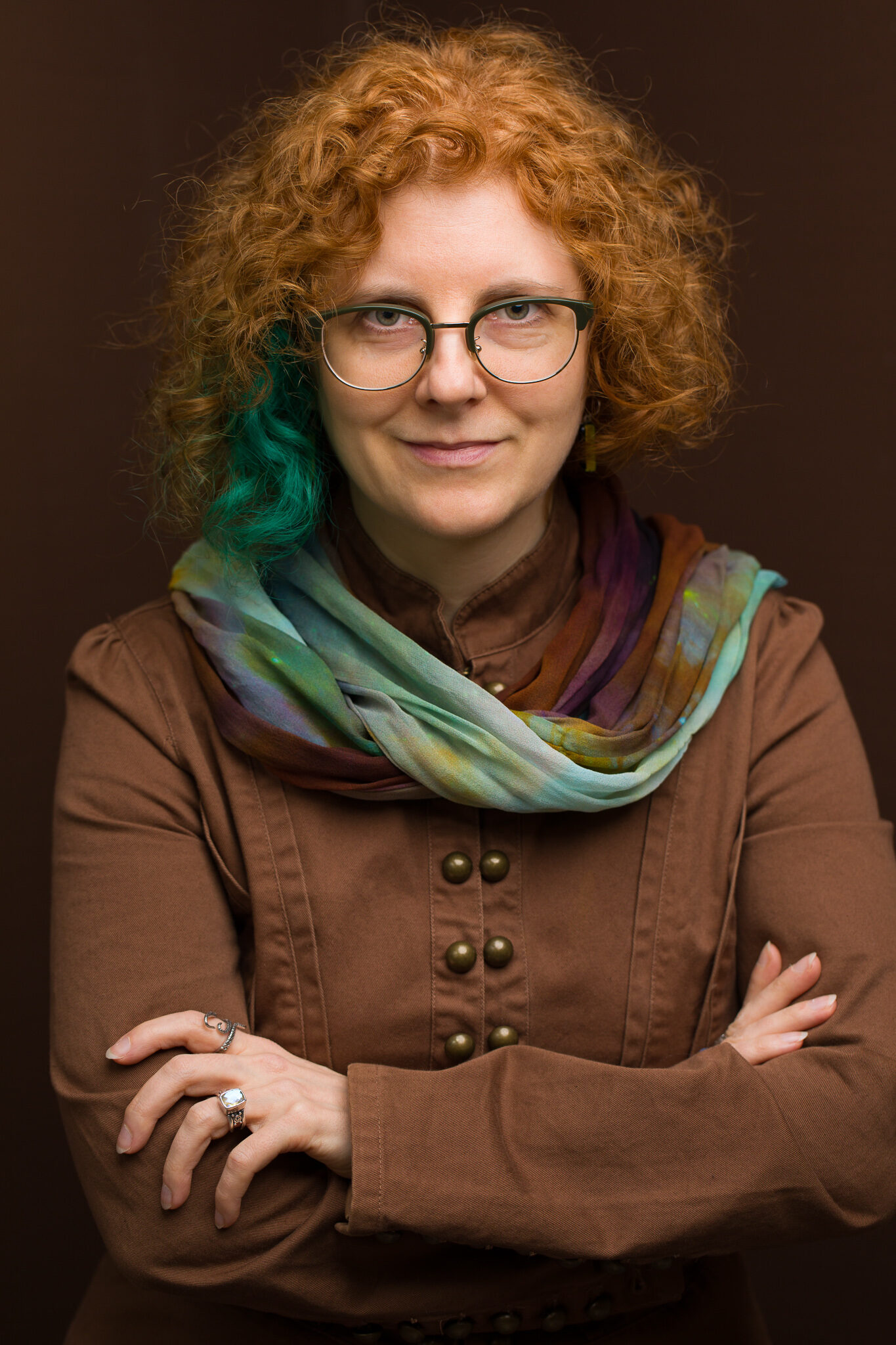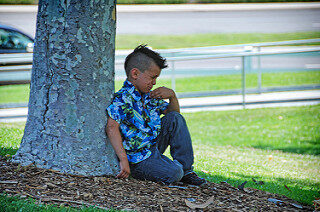Photo © Tony Cheng | Flickr / Creative Commons [image: Blue medical mask painted with a toothy, red-lipped smile.] Content note: Discussion of self-injury, self-harm, and aggression. —- Of all the varied stress bombs COVID-19 has lobbed at autistic people and their families, one of the more universal is the stress caused by routine disruption, coupled with constant close quarters. Few of us are at our best under such circumstances, so we wanted to share some advice and insights from autistic people and/or parents who are experiencing what you are experiencing about handling some of the tougher aspects, like increased tendencies towards self-injury and aggression. We also want to direct people towards our existing resources: Autistic Insights on Meltdowns, Aggression, and Self-Injury Understanding Autism, Aggression, and Self-Injury: Medical Approaches and Best Support Practices Behaviour Analysis, The Autistic Way Eleven Ways You Can Make Your Autistic Child’s Life Easier First, we…
Tag: stress
Carol Greenburg twitter.com/autisticenough Image © Shannon Des Roches Rosa [image: Photo of six people, seen from behind looking at downtown San Francisco from atop Twin Peaks.] Now that every rule of social engagement we’ve painstakingly tried to learn has been turned upside down by social distancing, it’s not just our routines that are disrupted: It’s our whole concept of the importance of Rules. I’ve heard many parents say their autistic kids are “rule-followers” and bitten my tongue wanting to ask if they thought it’s because we’re naturally rigid, or because we’ve been undergoing compliance training for as long as we can remember. Regardless of the origin, many of us cling desperately to whichever skills that get us approval rather than admonishment. Not always a bad thing, many rules certainly do make sense in appropriate context. All we-were-made-for-this jokes aside, social distancing is a stark example of a good rule in…
“If the dynamic of autistic burnout really is related to spending more resources coping than one has, I’m not sure the real leverage in avoiding burnout resides with the autistic person alone.”
Maxfield Sparrow unstrangemind.com Photo © 2017, Maxfield Sparrow [image description: a turtle in the middle of the road on a hot, sunny day. His skin is dark with bright yellow stripes and his shell is ornate, covered with swirls of dark brown against a honey-yellow background. The turtle is rushing to get across the street and his back leg is extended from the speed and force of his dash toward freedom.] I hate meltdowns. I hate the way they take over my entire body. I hate the sick way I feel during a meltdown and I hate the long recovery time—sometimes minutes, but just as often entire days—afterward, when everything is too intense, and I am overwhelmed and exhausted and have to put my life on hold while I recover. I hate the embarrassment that comes from a meltdown in front of others. I hate the fear that bubbles up…
The problem is not autistic hand flapping. The problem is when the decision has been made that hand flapping is annoying or weird, and not natural (and adorable!).
Maxfield Sparrow unstrangemind.com Photo © *Hajee | Flickr/Creative Commons [image: Person with black hair and a blue coat. They are holding a hand-lettered cardboard sign over their face. Sign reads, “VERY HUNGRY PLEASE HELP!”] I am not the only Disabled person economically struggling, as disability and poverty go hand in hand. Why is that? The answer is complex, since disability leads to poverty and poverty leads to disability. It’s a vicious cycle and sometimes a downward spiral, leading people to lead lives perpetually circling the drain, always on the edge of annihilation. Let me see if I can untangle some of it for you. “You’re dooming yourself to a hand-to-mouth existence.” That’s what my parents told me when I dropped out of high school. And they were right. Well, they were half-right, anyway. I have spent the last three decades living hand to mouth, but it is not a fate…
When you help me cope with a meltdown and when you help create an environment that helps me avoid meltdowns, you are helping to build a kinder, gentler world that has room for everyone, no matter what kind of nervous system they have.
Brenda Rothman mamabegood.blogspot.com I had a lovely conversation with another mom of an autistic child, face to face, sipping coffee, while we talked about hot-button issues in the autism community. Without losing respect or good will for each other. Maybe it was the coffee. It was good coffee. We debated “cure:” why some parents want it and why autistic persons are offended by it. She said the desire for a cure would never disappear for some autism parents because their children are more severely challenged. She told me the story of a single mom with an adult autistic son, who was non-verbal, had restricted motor abilities, was self-injurious, and would never live independently. She related how difficult it is for the single mom to handle her grown child, how distraught she is about how she would care for her child as she aged, who would care for her child after…
Lou Tecpanecatl ourlifewithdiego.blogspot.com Christmas is supposed to mean a day of relaxation and family meals. But last year, we decided to visit my parents in Ohio, and we booked a flight on Christmas Day. We knew in advance that flying with our older son, Diego, was going to be stressful because he might feel the need to get out of his seat to walk around and we were not sure how he would handle the airport crowd. We arrived well in advance of our departure in order to check our luggage and to make sure the kids had a chance to eat. Things were going relatively well until we got to the security checkpoint. I was in charge of keeping Diego from getting out of line and running somewhere else. My wife and I frantically unloaded the stroller and removed the baby’s jacket and shoes (he was six months old…
Prather Harrell www.africanamericanautismofaz.org No, not my autistic five year old son … I’m the one on the verge of a meltdown! It was one of those days where I could not seem to make anyone happy. Jonah, my five year old, had been having a bad summer all along. I can’t say that I blame him. Here we go changing his schedule around from KinderPrep (ABA/habilitation) in the mornings and public preschool in the afternoons with a few therapies sprinkled in between, to therapies in the morning and KinderPrep in the afternoon and no more Mrs. Marsha period (his preschool teacher – Jonah completed preschool this spring and will be headed to Kindergarten this fall). The teachers changed, the students changed, some of his therapists changed — we flipped his entire schedule around and no one ever consulted him about it. I guess I’d be pretty pissed too if somebody…






